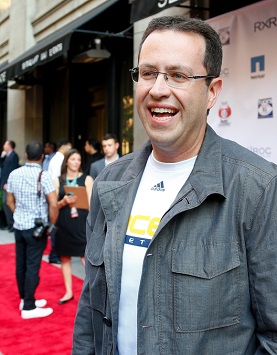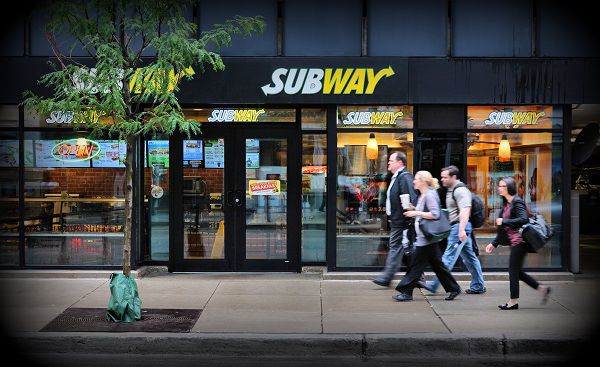“What was he thinking?!” It was the question on everyone’s mind when news broke that Subway Corporation’s pitchman Jared Fogle may have had dealings with an unscrupulous associate. Moreover, the national dialogue eventually shifted to include questions about Subway’s future and its reputation. The truth is, as a private, closely-held business, the sandwich franchise we’ve all come to know for its inexpensive, healthy meal choices and inspiring ad campaigns, indeed had options to avoid the fallout, including opting for reputational risk coverage under a captive insurance company. For decades, captive insurance resources were only available to large, Fortune 500 businesses. The Shells, the Exxons, and the Halliburtons of the world could leverage a captive manager to design, implement, and manage their captives, supplementing their commercial risk coverages. In 1987, the U.S. Congress adopted section 831(b) of the Internal Revenue Code, providing middle market businesses the opportunity to form captives and take advantage of their significant insurance and tax benefits.
Today, privately-owned franchisee owners can underwrite broader, more comprehensive coverages through a captive, which includes the non-standard or “special” risks that may not be covered with a conventional policy. Retail food manufacturers, private emergency rooms/medical offices, auto body chains and other franchises may qualify, as long as they have verifiable risks.
 Regarding the Jared/Subway case, it was decided to mutually sever business relations indefinitely, a smart move in order to stave off any negative associations with the Company’s image. But it may not be enough.
Regarding the Jared/Subway case, it was decided to mutually sever business relations indefinitely, a smart move in order to stave off any negative associations with the Company’s image. But it may not be enough.
By many accounts, Jared was regarded as the quintessential “little brother” of the TV ad world. Subway's ad agency originally discovered Jared when he was featured in a 1999 Men's Health story called "Stupid Diets That Work," after losing 240 lbs., eating nothing but two meals a day at Subway for a year (Source: CNN Money).
In the 16 years that followed, Subway’s “Eat Fresh” motto coupled with Jared’s boy-next-door persona provided a gentle reminder that living a healthier lifestyle was possible and for some, necessary. Essentially, Jared’s inspirational story brought people back to the franchise, sparking exponential growth and revenue numbers. Today, Subway has more locations globally than any other retailer, fast-food or otherwise, with 44,000 stores in 110 countries. But the tides may change as the company works to implement damage control. The unintended financial consequences for the Subway Corporation due to negative media attention have yet to be seen.
Gaining Insight Into Captive Insurance Resources
Subway’s story, as well as from other recent national headlines surrounding well known privately-held companies, such as Blue Bell Creameries LP has put reputational risks into focus; reminding middle market organizations that seemingly “small-time” risks can lead to significant financial losses. Blue Bell was compelled to lay off more than 1,400 employees after its ice cream products were linked to a deadly listeria outbreak. Blue Bell’s facilities weren’t operating according to standards set forth by health regulators in Texas and Oklahoma. In late April, shortly after the company announced a system-wide recall, one firm that provides financial data on privately-held companies said the recall could cost Blue Bell as much as $130 million in lost revenue in 2015 (Source: DallasNews.com). Blue Bell has now enlisted the help of an investor to help spearhead its efforts to reopen as an operational, safety-compliant business.
 There are few lessons to be learned from Subway and Blue Bell’s handling of their respective risk management decisions. Leveraging investment dollars might have been a good move for Blue Bell, but not all franchises will have this advantage given and unforeseen loss. For Subway, parting ways with Jared Fogle made for good PR—but the move doesn’t account for the potential revenue loss.
There are few lessons to be learned from Subway and Blue Bell’s handling of their respective risk management decisions. Leveraging investment dollars might have been a good move for Blue Bell, but not all franchises will have this advantage given and unforeseen loss. For Subway, parting ways with Jared Fogle made for good PR—but the move doesn’t account for the potential revenue loss.
Utilizing captive insurance resources would have provided these well-known businesses the funding needed to cover their own losses that resulted from unforeseen risks. In general, franchise owners faced with the threat of business interruption, be it from a drop in sales due to a sullied reputation, or from a national-wide recall of products, can opt for an alternative risk management plan that includes the formation of a captive. Special coverages would cover the specific risks of its associated business(s) and would provide other ancillary benefits, such as secured loans.
Taking measures to mitigate risks is a sound decision for any business. But risk transfer and risk financing through a captive takes other possibilities into account, such as regulatory changes, loss of a supplier, or the loss of a major customer through no fault of the insured.
Common Captive Insurance Coverages for Franchises
There are a number of coverages that can be written under a captive that are ideal for franchises—they are likely to have many risks such as the loss of the franchise, which protects the insured against the ensuing business interruption and extra expense that would result from a loss of franchise rights while the insured established a suitable replacement to resume normal business operations.
The loss of a major customer protects against business interruption and extra expense if a business’s customer base suddenly dropped off for any reason.
Other examples of coverages include:
- Special Risk - Cargo/Transit – Protects insured against loss or damage to property in transit in owned or leased vehicles, common carriers, or goods shipped by freight forwarders
- Employment Practices Liability – Coverage for a broad set of employment-related exposures including employment discrimination, sexual harassment, wrongful termination, breach of employment contracts, wrongful discipline, failure to provide a safe work environment, etc.
- Cyber Risk – Coverage for a broad set of computer, network, and internet-related exposures including content liability and interruption of service liability, first party coverage of both the insured’s tangible and intellectual property from perils such as cyber-attacks, viruses, computer crime, unauthorized access or use, and inadvertent errors or omissions.
- Labor Relations Risk – Limits labor disputes with coverage often excluded by EPL insurance policy.
Subway has made significant gains, leveraging celebrity spokesmen, promoting healthy food options, and making ownership of the franchise more affordable. The recent negative publicity is something it must recover from as it moves forward, reassuring the public of its values and commitment to providing the best service and food products.
Franchisees can plan for losses from reputational and other risks with specialty risk coverage through a captive insurance company. It’s a choice that may offset foreseeable and unforeseeable risks. Seeing what can happen when coverages are not in place should give everyone some incentive to make that choice.




